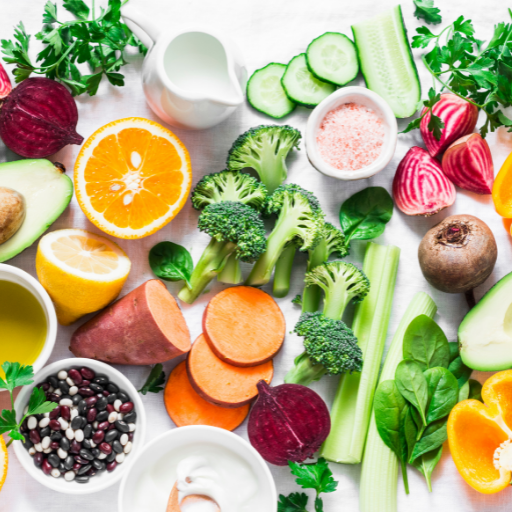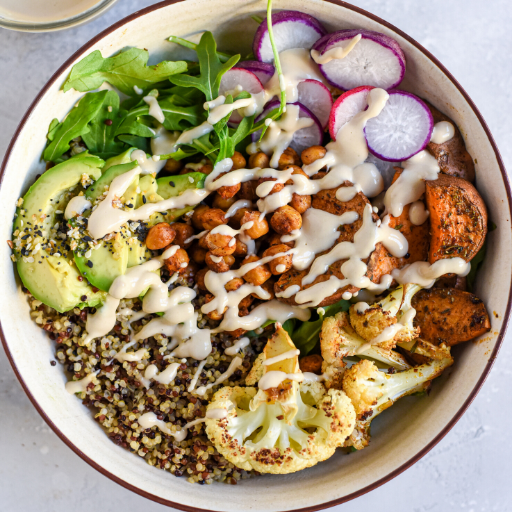Wellness Blog
The content on this blog is for general informational purposes only and is not a substitute for professional medical advice, diagnosis, or treatment. Always consult your healthcare provider before making changes to your health routine or taking new supplements.
What happens if you don't get enough sleep? Sleep deprivation effects and top tips for quality sleep
Until the 1950s, most people thought of sleep as a passive, dormant part of our daily lives (1). Today, we understand that our brains remain active during sleep, and that sleep is essential to forming memories, and keeping our brains healthy. Read on to learn more about sleep, sleep deprivation effects, and what you can do to get optimal rest.How sleep worksThere are four stages of sleep, divided into two categories; REM (rapid eye movement) and non-REM.Stage 1 non-REM sleep is the lightest stage as the body's muscles and breathing activity start to relax. During stage 2 non-REM sleep, you enter deeper sleep and your body's heart rate and temperature drop. Considered the deepest stage of sleep, stage 3 non-REM has the greatest arousal threshold. If someone is awoken during this stage, they will experience a phase of mental fogginess and have moderately impaired have mental performance for 30 minutes to an hour (2).Stage 4, also known as REM (rapid eye movement) is when brain activity peaks during sleep. During this time, most of the body, except the eyes and breathing muscles experience temporary paralysis. Although dreams can happen during any stage, the most intense dreaming takes place during REM sleep. The REM sleep stage is believed to be essential for the brain in enhancing learning and memory (4).How the body regulates sleepThe body has two biological mechanisms that tell the body it needs to sleep. Circadian rhythms control your timing of sleep and cause you to be sleepy at night as well as your tendency to wake in the morning without an alarm, in tune with your body clock (5). This is best described by the feeling of increased energy in the morning while under the daylight and sleepiness at night especially after we turn the lights off.Sleep-wake homeostasis is the body's internal sleep tracker. The homeostatic sleep drive reminds the body to sleep after a certain time and regulates sleep intensity. This sleep drive gets stronger every hour you are awake and causes you to sleep longer and more deeply after a period of sleep deprivation (6).Adults are recommended to get at least seven hours of sleep (7). But besides the number of hours, there are also other factors that affect our sleep quality. Poor sleep quality leads to easily interrupted sleep and fatigue while awake. Sleep deprivation effects can be caused by bad sleeping habits or even sleep disorders. For the latter, seeking medical treatment may be helpful.Sleep deprivation effectsAccording to the Sleep Health Foundation, four out of ten Australian adults experience poor sleeping quality (13). Loss of sleep may result in the following:Reduced mental performanceNot getting enough or good quality sleep can lead to experiencing problems like grogginess, tiredness, and reduced mental performance.Health concernsPoor sleeping habits can negatively impact blood pressure, cardiovascular health, and blood sugar levels. Inadequate sleep can also result in psychological conditions.Workplace problemsIn the workplace, sleep deprivation may result in loss of productivity due to fatigue. It may even lead to absenteeism, as a worker has to take time off to recover from poor sleep habits (13). Another possible result is workplace injuries due to the lack of focus that arises from less sleep (13).Tips on how to sleep betterCreate a relaxing bedtime environmentStress during bedtime can come from several sources and encourage the heart rate and blood pressure to increase (7). Try taking a warm bath an hour or two before bed. When you wake, make sure to get some natural light in your room to tell your body clock: it's time to wake. This will also tell your brain to hold off on producing melatonin until it gets darker and it's time to sleep again. Always remember that consistency is the key.Exercise regularlyThe connection between sleep and exercise has been well studied over the years. Major sleep deprivation effects can be mitigated with regular exercise that promotes better sleep quality and even increase the amount of time a person sleeps (8).Opt for supplementationYou can ensure the body receives sufficient nutrients through a well-balanced and healthy diet plan. Supplementation can help you achieve your daily requirements of these nutrients when paired with a well-rounded diet. Ashwagandha has been used in Ayurvedic (Indian) and Chinese medicine as a natural remedy for sleep, stress and overall vitality.Ashwagandha's herbal substance aids in reducing the time taken to sleep and promotes better sleep quality. It naturally contains alkaloids that act as a sedative and help in reducing sleep deprivation effects.Ashwagandha also contains the active sleep-inducing component triethylene glycol in its leaves. This component was seen to induce significant non-REM sleep, as well as slight changes to REM sleep (14).Vitable Australia's Ashwagandha only uses high quality plant extracts, made using gentle solvents. Take the expert quiz and learn how ashwagandha can support your sleep as part of your Vitable custom supplements. What's better, our services also come with vitamin delivery where you can get your vitamin packs anywhere in Australia.*Always read the label. Follow the directions for use. If symptoms persist, talk to your health professional. Vitamin and/or mineral supplements should not replace a balanced diet.References: American Sleep Association. What is Sleep and Why is It Important? Published on https://www.sleepassociation.org/about-sleep/what-is-sleep/. Accessed Oct 27, 2021. Aakash K. Patel, Vamsi Reddy, John F. Araujo. Physiology, Sleep Stages. NCBI. Updated April 22, 2022 on https://www.ncbi.nlm.nih.gov/books/NBK526132/. Accessed Oct 27, 2021. Eric Suni, John DeBanto. How Sleep Works. Sleep Foundation. Updated Oct 23, 2020 on https://www.sleepfoundation.org/how-sleep-works. Accessed Oct 27, 2021. Division of Sleep Medicine at Harvard Medical School. Sleep, Learning and Memory. Published Dec 18, 2007 on http://healthysleep.med.harvard.edu/healthy/matters/benefits-of-sleep/learning-memory. Accessed Oct 27, 2021. NIH. Brain Basics: Understanding Sleep. Published on https://www.ninds.nih.gov/Disorders/Patient-Caregiver-Education/Understanding-Sleep. Accessed Oct 27, 2021. NIH. Brain Basics: Understanding Sleep. Published on https://www.ninds.nih.gov/Disorders/Patient-Caregiver-Education/Understanding-Sleep. Accessed Oct 27, 2021. Centers for Disease Control and Prevention. How Much Sleep Do I Need? Published on https://www.cdc.gov/sleep/about_sleep/how_much_sleep.html. Accessed Oct 27, 2021. Danielle Pacheco. “Exercise and Sleep”. Sleep Foundation. Published Jan 22, 2021 on https://www.sleepfoundation.org/physical-activity/exercise-and-sleep. Accessed on Oct 27, 2021. Mayo Clinic. Sleep Disorders. Published on https://www.mayoclinic.org/diseases-conditions/sleep-disorders/symptoms-causes/syc-20354018. Accessed Oct 27, 2021. Sleep.Org. How Sleep Works. Published Mar 12, 2021 on https://www.sleep.org/how-sleep-works/. Accessed Oct13, 2021. Christopher E. Kline, Ph.D. “The bidirectional relationship between exercise and sleep: Implications for exercise adherence and sleep improvement”. National Center for Biotechnology Information. Published Nov1, 2015 on https://www.ncbi.nlm.nih.gov/pmc/articles/PMC4341978/. Accessed on Oct 27, 2021. Kumar, A., Kalonia, H.. Protective effect of Withania somnifera Dunal on the behavioral and biochemical alterations in sleep-disturbed mice. Indian Journal of experimental biology, Published 2017 on https://www.ncbi.nlm.nih.gov/pubmed/17585686. Accessed Oct 27, 2021 Sleep Health Foundation. Asleep on the job: Costs of inadequate sleep in Australia. Published August 2017 on https://www.sleephealthfoundation.org.au/files/Asleep_on_the_job/Asleep_on_the_Job_SHF_report-WEB_small.pdf. Accessed November 1, 2021 Kumar, A., Kalonia, H. Effects of Withania somnifera on Sleep-Wake cycle in Sleep-Disturbed Rats: Possible GABAergic Mechanism. Published November 2008 on https://www.ncbi.nlm.nih.gov/pmc/articles/PMC3040882/ . Accessed Nov 24, 2021
Learn moreCortisol: The stress hormone and how to manage it
Cortisol and stress: The connectionStress is experienced by everyone and is a completely normal part of life. It's our body's reaction to a challenge or demand (1). But to better understand stress, we first have to get to know cortisol, a steroid hormone. Cortisol and stress are closely related. When stressed, a hormonal reaction that tells your brain to adapt to a situation through a fight or flight mechanism takes place. Through a combination of nerve and hormonal signals, this system prompts your adrenal glands, located at the top of your kidneys, to release a surge of hormones, including adrenaline and cortisol (2). Also known as the primary stress hormone, cortisol helps control the body's use of fats, proteins and carbohydrates; suppresses inflammation; regulates blood pressure; increases blood sugar; and can also decrease bone formation. It also controls the sleep/wake cycle, giving you a boost of energy to better handle an emergency (3).But what happens when this system of releasing cortisol during stressful times goes out of hand?Stress and health problemsA small amount of stress can lead to increased alertness, energy and productivity. For example, an athlete playing in a game gets a rush of adrenaline, allowing him or her to perform with higher levels of energy.However, repeated or prolonged exposure to a stressor leads to chronic stress and can have detrimental effects physically and mentally. This long-term or constant exposure to stress prevents the person's body or mind from returning to normal activity (4). Too much cortisol may lead to weight gain (particularly around the abdomen and neck), fatigue, muscle weakness, easily bruised skin, among other health issues (5).Managing the effects of excessive cortisol and stressIf you feel that you are experiencing any of these symptoms, it is best to contact your healthcare professional for an overall treatment plan. A professional can provide recommendations on how to reduce cortisol. You can also curb the effects of excessive cortisol and stress by supplementing your daily routine with the right vitamins and minerals. These can be obtained through a healthy and well-balanced daily diet. You may also opt for supplementation to be paired alongside a healthy diet plan.Below are the vitamins and minerals you may want to consider to help manage stress and cortisol levels:Vitamin B complex and B12Each B vitamin plays a unique role in the body, making B group vitamins essential for your body to function optimally. B group vitamins help release energy from nutrients like carbohydrates, fats and protein. They also assist with brain function, healthy stress response, and the immune system function. One study found that B vitamin supplementation resulted in significant reduction in reports of personal strain due to work stress (11).Vitamin B12 is essential for cellular energy production and metabolism, both areas that need a boost during periods of stress (6). It also aids the nervous system through the synthesis of protein structures in the myelin sheath around nerves. On the other hand, vitamin B12 deficiency might result in demyelination of nerves, causing neurological problems (7). Vitable's Vitamin B12 supplement comes in an easily digested, highly active form that is easy for your body to absorb. It uses methylcobalamin which is a bioavailable form of B12.MagnesiumMagnesium is required by the body to metabolise dietary carbohydrates and fats for energy (8). Increased stress can make the body expend more energy. And since we're using magnesium to metabolise carbs and fats, increased or prolonged stress can lead to a potential magnesium deficiency. Deficiency is a significant concern because magnesium is also involved in the control of several central nervous system processes, and depletion can lead to neurological symptoms or disease (9).Increase your magnesium intake to ensure your body gets the energy it needs. Vitable's Magnesium supplement is in the form of magnesium citrate, one of the most easily absorbed and utilised forms by the body. It also comes in a vegetarian capsule form and is vegan, free from added gluten and lactose, and non-GMO.CalciumCalcium plays a vital role in muscle health. Good muscle health properly regulates several muscle contractions like that of the heart's (10). This aids energy production and immune function that may help us manage stress better.Vitable's Calcium Plus supplement is enriched with vegan Vitamin D3. This helps increase calcium metabolism and absorption in the body. The pair works together to support bone health and muscle function.AshwagandhaFurther reduce stress symptoms and improve sleep quality by consuming Ashwagandha. The traditional Ayurvedic herb has been used around the world for centuries for its calming effects. Vitable's Ashwagandha supplement uses a potent and full spectrum, scientifically-backed Ashwagandha extract available in the market. With expansive clinical backing, this herbal extract uses only the roots and not the leaves, providing an undiluted full spectrum of benefits. This adaptogen not only aids in stress relief but helps reduce time to fall asleep.Ginkgo and BrahmiThe Ginkgo leaf has been used medicinally for thousands of years and is one of the world's oldest living tree species. Also known as the brain herb, Ginkgo is a powerful adaptogen that has the ability to improve brain function, concentration and memory along with supporting the body's stress response.Brahmi is a common herb used as another traditional Ayurvedic medicine. It is renowned as a powerful brain tonic. The nerve tonic exerts nootropic activity to enhance cognition.Using high quality plant extracts and made using gentle solvents, the extraction ensures that the supplement resembles the composition of the natural plant. The high dosage combination of both herbs makes it a powerful formula to support brain function. By incorporating specific vitamins and minerals into your diet, you can support your body in beating stress. If you are struggling to meet your daily requirements, then you can consider supplementation. Try out a monthly vitamin subscription with Vitable Australia where you can put together custom vitamin packs that suit your needs, which can be taken alongside a well-rounded diet. You can also make use of our vitamin delivery service to have your daily vitamin packs brought right to your doorstep.Find out more about other areas that the above supplements can help you with:Vitamin B complex | Vitamin B12 | Magnesium | Calcium | Ashwagandha | Ginkgo Brahmi *Always read the label. Follow the directions for use. If symptoms persist, talk to your health professional. Vitamin and/or mineral supplements should not replace a balanced diet.References: Medline Plus. Stress and your health. NIH US National Library of Medicine. Published on https://medlineplus.gov/ency/article/003211.htm. Accessed Oct 26, 2021. Mayo Clinic Staff. Chronic stress puts your health at risk. Mayo Clinic. Published July 8, 2021 on https://www.mayoclinic.org/healthy-lifestyle/stress-management/in-depth/stress/art-20046037. Accessed Oct 26, 2021. John Hopkins Medicine. Adrenal Glands. Published on https://www.hopkinsmedicine.org/health/conditions-and-diseases/adrenal-glands. Accessed Oct 26, 2021. National Institute of Mental Health. 5 Things You Should Know About Stress. National Institute of Health. Published on https://www.nimh.nih.gov/health/publications/stress. Accessed on October 23, 2021. Health Direct. The role of cortisol in the body. Published May 2020 on https://www.healthdirect.gov.au/the-role-of-cortisol-in-the-body. Accessed Oct 26, 2021. O'Leary, F., & Samman, S. Vitamin B12 in health and disease. Published 2010 on https://doi.org/10.3390/nu2030299. Accessed Oct 26, 2021. Braun, L., and Cohen,Marc. Herbs & Natural Supplements An Evidence-based guide Volume 2. 4th ed. Published 2015. Accessed on October 26, 2021. Linus Pauling Institute - Micronutrient Information. Magnesium. Published 2019 on https://lpi.oregonstate.edu/mic/minerals/magnesium. Accessed Oct 26, 2021 Grober, U., Schmidt, J., Kisters, K. Magnesium in Prevention and Therapy. Published 2015 on https://www.mdpi.com/2072-6643/7/9/5388. Accessed Oct 26, 2021. Braun, L., and Cohen,Marc. Herbs & Natural Supplements An Evidence-based guide Volume 2. 4th ed. Published 2015. Accessed on October 26, 2021. Stough, C., et. al., Reducing occupational stress with a B-vitamin focussed intervention: a randomized clinical trial: study protocol. Published December 2014 on https://www.ncbi.nlm.nih.gov/pmc/articles/PMC4290459/. Accessed on November 1, 2021.
Learn moreStress and weight: How are they related?
A certain level of stress is unavoidable nowadays. Whether it be from work or family-related concerns, lifestyle or a specific event - there are various factors that can contribute to stress levels. It can have many impacts on your physical health, but is there a connection between stress and weight loss or weight management?What is stress?First, let's take a look at what stress actually is. It is our body's natural response to challenge or demand (1, 2).The impact of stress can be physical, psychological or emotional. In some cases, stress has the potential to affect how we behave in our daily lives. This can result in sleeping disorders, excessive drinking or smoking as an outlet, and even weight management problems (1,2,3). Whilst the link between stress and weight gain is relatively common knowledge, the relationship between stress and weight loss is far lesser known.Stress and weight lossTrouble absorbing nutrientsStress plays a role in weight loss problems (5). When coupled with an unhealthy diet, stress can inflame the vagus nerve (5). This nerve plays a part in how our body processes and metabolises food (5). Stress prevents it from activating properly, affecting the digestion and absorption of nutrients (5).Gastro-intestinal factorsStress can also lead to gastrointestinal system issues which often results in changing eating habits and appetite (supressed appetite), even higher stress levels and even weight loss. Stress may cause bloating, as well as gut pain and discomfort (9), which may affect your appetite.Stress and weight gainOvereatingJust like weight loss, stress and weight gain also go hand-in-hand (8). Being under stress may result in unhealthy eating habits, commonly referred to as “stress eating.” Higher levels of stress may compel you to keep eating even when you aren't actually hungry, resulting in an excess calorie intake (8).Cortisol productionThe hypothalamic-pituitary-adrenal (HPA) axis is responsible for responding to stress. This, in turn, affects cortisol levels. More cortisol is produced when we are stressed. Cortisol can stimulate cravings for unhealthy foods that are high in fat and sugar. These cravings for calorie-laden foods are because your body thinks it may need to fuel up to face your stressors (10).Stress management tipsNow that we understand the negative health impacts that stress can have on your health and weight management, here are some tips to manage stress levels (4):Exercise regularlyAmong many other health benefits, exercise has also been shown to be a great stress reliever. When choosing an activity, opt for yoga, tai-chi or other relaxing activities that can help you stay fit.Practice relaxation techniquesHabitually taking the time to relax yourself can help manage your stress. Look into activities such as breathing or meditation to help you wind down before starting or ending a busy day. A great time to practice breathing activities or meditation is at the beginning of the day to help put you in a positive mindset, or at the end of the day to help you wind down.Follow a healthy dietMake a habit out of eating nutritious whole foods to help your body combat stress. If your lifestyle, such as time restraints, makes it difficult for you to get all the nutrients that you need, consider how supplements could benefit your diet.Supplements to support stress and weight managementHere are some supplements you can consider taking alongside a healthy diet to help support your body's stress response and weight management.AshwagandhaThis wonder herb is traditionally used in Western herbal medicine to help the body reduce symptoms of stress and enhance the body's adaptation to stress. It has been found to have moderating effects on the HPA axis, and reduces the effects of mild stress (11).B ComplexThe B group of vitamins supports healthy stress response in the body. B5, in particular, helps improve the body's response to stress (12).Ginkgo & BrahmiGinkgo and Brahmi have been known to enhance the body's adaptation to stress. Studies have found that Ginkgo may aid in relieving mild anxiety, while Brahmi helps the body adapt to stress (14).Whilst there are many stress factors that are out of our control, knowing which vitamins can support your body shouldn't be one of them. Vitable's vitamin subscription and vitamin delivery services can help create a personalised vitamin plan to suit your health goals, including stress. Find out more about other areas that the above supplements can help you with:Ashwagandha | B complex | Ginkgo Brahmi *Always read the label. Follow the directions for use. If symptoms persist, talk to your health professional. Vitamin and/or mineral supplements should not replace a balanced diet.References: Stress (2019), Accessed October 27, 2021 from https://www.healthdirect.gov.au/stress-symptoms Stress (n.d.), Accessed October 27, 2021 from https://www.betterhealth.vic.gov.au/health/healthyliving/stress Stress Management (2021), Accessed October 27, 2021 from https://www.mayoclinic.org/healthy-lifestyle/stress-management/in-depth/stress-symptoms/art-20050987 Stress: 10 Ways to Ease Stress (2020), Accessed October 27, 2021 from https://my.clevelandclinic.org/health/articles/8133-stress-10-ways-to-ease-stress Stress, Food, and Inflammation: Psychoneuroimmunology and Nutrition at the Cutting Edge (2010), Accessed October 31, 2021 from https://journals.lww.com/psychosomaticmedicine/Abstract/2010/05000/Stress,_Food,_and_Inflammation_.6.aspx Magnesium Status and Stress: The Vicious Circle Concept Revisited (2020), Accessed October 27, 2021 from https://www.ncbi.nlm.nih.gov/pmc/articles/PMC7761127/ Stress and Osteoporosis (2017), Accessed October 31, 2021 from https://www.oamichigan.com/stress-and-osteoporosis/ How do I control stress-induced weight gain? (2020), Accessed October 31, 2021 from https://www.mayoclinic.org/healthy-lifestyle/stress-management/expert-answers/stress/faq-20058497 Stress effects on the body (2018), Accessed October 31, 2021 from https://www.apa.org/topics/stress/body How Stress Can Make You Eat More — Or Not At All (2020), Accessed October 31, 2021 from https://health.clevelandclinic.org/how-stress-can-make-you-eat-more-or-not-at-all/ Ashwagandha Plus (n.d.), Accessed October 31, 2021 from https://research.get.vitable.com.au/ashwagandha-plus B-Complex (n.d.), Accessed October 31, 2021 from https://research.get.vitable.com.au/b-complex Vitamin B12 deficiency can be sneaky, harmful (2020), Accessed October 31, 2021 from https://www.health.harvard.edu/blog/vitamin-b12-deficiency-can-be-sneaky-harmful-201301105780 Ginkgo & Brahmi (n.d.), Accessed October 31, 2021 from https://research.get.vitable.com.au/ginkgo-brahmi
Learn moreLooking to improve joint health? Here are the top nutrients you should consider
Imagine engineers putting together robots. Getting the processing unit or the “brain” of the robot functioning seems easy with today's technology. The real biological challenge that is hard to replicate is mobility. We know mobility involves the use of joints. Without it, a robot would be significantly less effective than its true capacity. Similarly, humans use joints to maintain our body's structure and to allow movement (1, 2). Without them, we wouldn't be able to stay fit and healthy or complete menial, daily tasks. Consuming the right nutrients is a simple way to maintain and support joint health. It can either be from the food that we eat or supplementation that is paired with a well-rounded diet.Additions to your vitamin subscription to support joint healthHere are some of the best nutrients to consider adding to your vitamin subscription to help support joint health:Vitamin CVitamin C is an important nutrient as it not only maintains connective tissue, bone, and joint health, but a person's overall health. It is found in fruits such as oranges, grapefruit, kiwi, and berries, and vegetables like broccoli, spinach, and brussels sprouts. It can also be sourced from personalised supplements.Vitamin C maintains joint cartilage health. A deficiency of this nutrient can affect the formation of collagen in the body (4) and may lead to joint pain, defects in connective tissue, and bone weakening. It is important to take enough vitamin C to stimulate the production of connective tissue in the bones and joints, and promote connective tissue healing (5).Fish oilFish oil contains two types of omega-3 fatty acids, which are eicosapentaenoic acid (EPA) and docosahexaenoic acid (DHA). Fish oil supports joint health by protecting against joint swelling and pain (6).Fish oil can easily be found in fish oil supplements but there are other foods that also have omega-3 fatty acids. It can be found in fish such as salmon, herring, trout, and sardines (8). There are plant-based omega-3 foods with α-Linolenic acid (ALA), which is different from fish oil.CranberryWhether it's eaten as a fruit, sipped as a juice, taken as a supplement, or included in desserts, cranberry is considered as one of many foods that promote joint health. A study has seen that patients who consume cranberry juice, in addition to other medications, have less inflammatory activity that affects the joints (9). Cranberry's vitamin C content increases collagen formation, which helps in protecting and strengthening your connective tissue, and promotes faster bone healing (10).CurcuminCurcumin is one of the active ingredients of turmeric. It has been observed to improve and maintain joint health. With its anti-inflammatory and antiarthritic components, curcumin helps in reducing mild joint pains (11) and providing relief for mild joint inflammation (12). A study also shows that patients taking medicine with curcumin have the most improvement in terms of certain joint illnesses (13).Curcumin can be found in turmeric and it has been used as teas, drinks, and spices (14). On its own, it can be found in powder or capsule forms and taken as supplement to improve health.How to get your own personalised supplementsVitable offers subscription vitamins for the nutrients our bodies need. In putting together your own personalised vitamins, choose from a wide variety of vitamins not just for joints but for your overall health. Create your own vitamin packs here in Australia, and we will ship them right to your doorstep. We offer vitamin delivery services so you can start pairing these supplements with a healthy diet today.Find out more about other areas that the above supplements can help you with:Vitamin C | Fish oil | Cranberry | Curcumin *Always read the label. Follow the directions for use. If symptoms persist, talk to your health professional. Vitamin and/or mineral supplements should not replace a balanced diet.References: "Bones, muscles and joints". HealthDirect. Published Sep. 2019 on https://www.healthdirect.gov.au/bones-muscles-and-joints. Accessed Oct. 16, 2021 "Joints". Better Health Channel. Published on https://www.betterhealth.vic.gov.au/health/conditionsandtreatments/joints. Accessed Oct. 16, 2021 Jamison, R., Anderson, K., and Slater, M. “Weather changes and pain: perceived influence of local climate on pain complaint in chronic pain patients”. Pain. Published May 1995 on https://journals.lww.com/pain/Abstract/1995/05000/Weather_changes_and_pain__perceived_influence_of.18.aspx. Accessed Oct. 16, 2021 Higdon, J., Drake, V., Angelo, G., Delage, B., Carr, A. and Michels, A. “Vitamin C”. Oregon State University: Linus Pauling Institute. Published Dec. 2018 on https://lpi.oregonstate.edu/mic/vitamins/vitamin-C. Accessed Oct. 16, 2021 DePhillipo, N., Aman, Z., Kennedy, M., Begley, J., Moatshe, G., and LaPrade, R. "Efficacy of Vitamin C Supplementation on Collagen Synthesis and Oxidative Stress After Musculoskeletal Injuries: A Systematic Review". Orthopaedic journal of sports medicine. Published Oct. 2018 on https://journals.sagepub.com/doi/10.1177/2325967118804544. Accessed Oct. 16, 2021 Miles, E. and Calder, P. "Influence of marine n-3 polyunsaturated fatty acids on immune function and a systematic review of their effects on clinical outcomes in rheumatoid arthritis". The British Journal of nutrition. Published Jun. 2012 on https://www.cambridge.org/core/journals/british-journal-of-nutrition/article/influence-of-marine-n3-polyunsaturated-fatty-acids-on-immune-function-and-a-systematic-review-of-their-effects-on-clinical-outcomes-in-rheumatoid-arthritis/0F3DAA86B29B4D942B8381AA3F599D17. Accessed Oct. 16, 2021 Lee, Y., Bae, S., and Song, G. "Omega-3 polyunsaturated fatty acids and the treatment of rheumatoid arthritis: a meta-analysis". Archives of medical research. Published Jul. 2012 on https://www.sciencedirect.com/science/article/abs/pii/S018844091200166X. Accessed Oct. 16, 2021 Higdon, J., Drake, V., Angelo, G., Delage, B., and Jump, D. “Essential Fatty Acid”. Oregon State University: Linus Pauling Institute. Published Jun. 2019 on https://lpi.oregonstate.edu/mic/other-nutrients/essential-fatty-acids. Accessed Oct. 16, 2021 Thimóteo, N., Iryioda, T., Alfieri, D., Rego, B., Scavuzzi, B., Fatel, E., Lozovoy, M., Simão, A., and Dichi, I. "Cranberry juice decreases disease activity in women with rheumatoid arthritis". Nutrition. Published Apr. 2019 on https://www.sciencedirect.com/science/article/abs/pii/S0899900718303800. Accessed Oct. 16, 2021 DePhillipo, N., Aman, Z., Kennedy, M., Begley, J., Moatshe, G., and LaPrade, R. "Efficacy of Vitamin C Supplementation on Collagen Synthesis and Oxidative Stress After Musculoskeletal Injuries: A Systematic Review". Orthopaedic journal of sports medicine. Published Oct. 2018 on https://journals.sagepub.com/doi/10.1177/2325967118804544. Accessed Oct. 16, 2021 Chandran, B., and Goel, A. “A randomized, pilot study to assess the efficacy and safety of curcumin in patients with active rheumatoid arthritis”. Phytotherapy Research. Published Nov. 2012 on https://onlinelibrary.wiley.com/doi/10.1002/ptr.4639. Accessed Oct. 16, 2021 Chin K. “The spice for joint inflammation: anti-inflammatory role of curcumin in treating osteoarthritis”. Drug design, development and therapy. Published Sep. 20, 2015 on https://www.dovepress.com/the-spice-for-joint-inflammation-anti-inflammatory-role-of-curcumin-in-peer-reviewed-fulltext-article-DDDT. Accessed Oct. 16, 2021 Daily, J., Yang, M., and Park, S. "Efficacy of Turmeric Extracts and Curcumin for Alleviating the Symptoms of Joint Arthritis: A Systematic Review and Meta-Analysis of Randomized Clinical Trials". Journal of medicinal food. Published Aug. 1, 2016 on https://www.liebertpub.com/doi/10.1089/jmf.2016.3705. Accessed Oct. 16, 2021 “Turmeric Curcuma longa Benefits, Usage, Dose, Side Effects”. Easy Ayurveda. Published on https://www.easyayurveda.com/2013/10/23/turmeric-curcuma-longa-benefits-usage-dose-side-effects/. Accessed Oct. 16, 2021
Learn more5 Yoga Poses to Help Digestion & Gut Health
Who knew yoga could actually be good for digestion problems? We're mind blown too. Discover all the poses that can help and start improving your digestive health today.
Learn moreTips to nip sickness in the bud, quick!
Falling sick doesn't just feel bad, it can totally disrupt your life, and often when you don't have time for it! Unfortunately, sickness can't always be avoided. Even with our best efforts to dodge illnesses, we might still end up catching a bug, or falling under the weather. The good news is, we can take certain steps to help us recover more quickly. Here is what to do when you're feeling sick or rundown:What to do when you feel sickUnderstand when you should see a doctor.First, you should have a good understanding of when you need to take yourself to the hospital or clinic. While it's true that many mild illnesses only require bed rest, hydration, and good nutrition for recovery, there might be cases where you would need more care and attention. Consult your doctor for better advice on what to do when you feel sick.Take the day offThe moment you feel yourself feeling under the weather, you should aim to get adequate rest. Don't force yourself to do more work! Yes, we're giving you the permission to call in sick at work, skip going to gym, and cancel other activities you have planned. While this can be challenging, by taking time out from your everyday activities, you're effectively keeping friends, family, loved ones, and colleagues safe from potentially getting sick through you.Load up on sleepGood quality sleep can really aid in your recovery (1, 2). Quality sleep allows the body to rejuvenate and power through any sickness. If you're wondering what to do when you feel sick, remember to get as much shuteye as you can.Drink plenty of fluidsWe tend to lose a lot of water when we're sick through vomiting, sweating, and diarrhea to name a few (2, 3). It's important to keep ourselves hydrated, so that our body functions normally while we're sick. On top of that, we also need to be constantly hydrated to flush toxins out of our body.Eat wellNeedless to say, you need to make sure you're eating properly when you feel the slightest hint of falling sick or have already fallen sick. But, what types of food do you eat when sick? Lay off that bag of potato chips. Instead, opt for broth-based soups, aromatic foods, herbal tea, fresh fruits, and even some garlic to fight off sickness (4, 5).Supporting immunity with supplementationBesides knowing what food to eat when sick, taking vitamins when you feel under the weather can help provide support for your immune system. However, always consult your doctor before taking any medication or supplements. Here's a list of some vitamins and minerals that might be helpful in getting you back up on your feet:ZincZinc supports the immune system by playing a role in the development and function of immune cells (6). People suffering zinc deficiency have increased susceptibility to infections (6).IronIron is important for the proliferation of immune cells (7).*Iron should only be taken if prescribed by your doctor.AstaxanthinAstaxanthin helps modulate immune response, and protects against malignant growths (8).AshwagandhaAshwagandha supports the immune system by acting as an adaptogen that helps the body's resilience to stress (9). It also improves cell-mediated immunity.ProbioticsStudies have shown that some strains of probiotics help modulate the immune system. They are of special importance for the intestinal immune system, affecting the growth of immune cells (10).B complexB vitamin deficiency has been reported to possibly affect the body's immune system. B12, specifically, helps support cellular immunity (11).Vitamin CVitamin C supports the immune system by playing a role in the production and function of immune system cells (12).Vitamin DVitamin D plays a role in modulating one's immune response. Vitamin D supplementation may help boost various immune cells (13).Fish oilOmega-3 fatty acids found in fish oil play a role in the activation of immune system cells (14).These nutrients and minerals help improve the immune system, aid in energy production, and help keep the body running in tip-top shape.The first step in answering the question of “what to do when you feel sick” is to prevent your condition from getting worse. You can do this by getting adequate rest and sleep, hydrating, and eating healthy foods. Of course, taking vitamins that support your immune system can also help. If you're looking for supplementation to help support immune health, Vitable can provide you with a personalised selection. Our vitamin subscription of custom vitamin packs can help you meet your daily vitamin requirements when paired alongside a healthy and well-balanced diet. Vitable also has a vitamin delivery service which you can enjoy - get your monthly pack delivered direct to your doorstep! Find out more about other areas that the above supplements can help you with:Zinc | Iron | Astaxanthin | Ashwagandha | Probiotics | B complex | Vitamin C | Vitamin D | Fish oil*Always read the label. Follow the directions for use. If symptoms persist, talk to your health professional. Vitamin and/or mineral supplements should not replace a balanced diet.References: Sleep, Recovery, and Meta Regulation: Explaining the Benefits of Sleep (2015), Accessed on 11/21/2021 on https://www.ncbi.nlm.nih.gov/pmc/articles/PMC4689288/ 6 Ways to Bounce Back From Illness (2018), Accessed on 11/21/2021 on https://achs.edu/blog/2018/02/27/how-to-recover-from-illness-faster/ Cold Remedies: What Works, What Doesn't, What Can't Hurt (2021), Accessed on 11/21/2021 from https://www.mayoclinic.org/diseases-conditions/common-cold/in-depth/cold-remedies/art-20046403 Not Sure What to Eat When You're Sick? (2018), Accessed on 11/21/2021 from https://intermountainhealthcare.org/blogs/topics/live-well/2018/01/not-sure-what-to-eat-when-youre-sick/ The Best Foods to Eat When You're Sick (2021), Accessed on 11/21/2021 frin https://health.clevelandclinic.org/the-best-foods-to-eat-when-youre-sick/ Zinc and immune function: the biological basis of altered resistance to infection (1998), Accessed on 12/02/2021 on https://pubmed.ncbi.nlm.nih.gov/9701160/ Iron (n.d.), Accessed on 12/02/2021 on https://research.get.vitable.com.au/iron Astaxanthin decreased oxidative stress and inflammation and enhanced immune response in humans (2010), Accessed on 12/02/2021 on https://www.ncbi.nlm.nih.gov/pmc/articles/PMC2845588/ An Overview on Ashwagandha: A Rasayana (Rejuvenator) of Ayurveda (2011), Accessed on 12/02/2021 on https://www.ncbi.nlm.nih.gov/pmc/articles/PMC3252722/ Probiotics (n.d.), Accessed on 12/02/2021 on https://research.get.vitable.com.au/probiotics B Complex (n.d.), Accessed on 12/02/2021 on https://research.get.vitable.com.au/b-complex Vitamin C Plus (n.d.), Accessed on 12/02/2021 on https://research.get.vitable.com.au/vitamin-c-plus Vitamin D and the Immune System (2011), Accessed 12/02/2021 on https://www.ncbi.nlm.nih.gov/pmc/articles/PMC3166406/ Effects of Omega-3 Fatty Acids on Immune Cells (2019), Accessed 12/02/2021 on https://www.ncbi.nlm.nih.gov/pmc/articles/PMC6834330/ Biotin (n.d.), Accessed on 12/02/2021 on https://research.get.vitable.com.au/biotin
Learn moreHow age impacts energy levels: What you need to know
It's easy to fall into the mindset that energy levels are simply not the same as they were when you were a young spring chicken, but science tells us otherwise! The good news is you can feel vital, energised, and healthy at any age with the right lifestyle support. Read on to learn more.One of many indicators of good health is having enough energy to do things you have planned for the day, and having enough left to get you to the next day. This is linked to nutrition as it's where the body gets its energy. Carbohydrates, lipids and proteins that are broken down are transformed into different types of energy used for different functions of the body (1).Energy levels differ depending on factors such as the environment, physical activity, and age, among other things. For example, changes in seasons linked to high or low temperature can affect the body's metabolism rate, which may use up more energy in the body (2). Likewise, depending on the physical activity you'll be engaging in, it may need more energy than a sedentary activity (3).Let's zoom in on how energy is affected by age, and what you can do about it to ensure you optimise your workouts.How life stages impact energy levelsWhen it comes to energy, several factors account for the different levels required by different age groups. Some factors affected by ageing are body size, body composition and physical activity (3). Gender can also be one of the factors depending on situations like pregnancy and lactation, which can increase the energy needed by the body (4). There are also some cases where males have more energy needs compared to females.Measuring energy at rest by using resting energy expenditure or REE, it is observed that energy increases from infancy until age 60, from where it starts to decline (4). Energy levels are also relative to a person's body mass. Greater height and weight would mean that more energy is needed to maintain healthy bodily functions (5). It was seen in a study that older people's weight tends to decline with age, lowering the amount of energy they need at rest (6).Australians measure energy by kilojoules, allowing us to quantify the energy requirements for different age groups (5). According to the National Health and Medical Research Council, the estimated energy requirements for males performing sedentary activity are the following: Ages 19-30: 10.8 megajoules Ages 31 to 50: 11 megajoules Ages 51-70: 9.5 megajoules Age 70 and above: 7.9 megajoules (3). These requirements differ for females, where the amount of physical activity is quantified from 1.2, which is at rest and at 2.4 with strenuous exercise or sport (3).How to boost your energy through exerciseExercises can strengthen physical condition, mental health, and overall mood, but it can also improve one's energy levels (7). One study shows that with regular exercise, participants have felt less fatigued and more energised (8).Low intensity exercises such as yoga and pilates or strenuous routines such as P90X or high-intensity interval training (HIIT) can make a difference. However, different kinds of physical activity are more appropriate for some individuals, given the body's differing energy levels depending on how old a person is. A daily routine that incorporates a nutritious diet and exercise is one of the best ways to boost energy levels as we age. Irrespective of age, these two factors are beneficial in both improving overall well-being as well as lifting energy levels.Nutrition to aid energy levels and productionEnergy comes from the food that we eat, but there are nutrients that help support energy levels, specifically. It's good to know what those nutrients are so that a person can choose what to do, as energy requirements for different age groups can vary.The following are some nutrients that you can include as part of your supplementation plan which can be taken alongside a healthy and well-rounded diet:IronThere are multiple bodily functions where iron is used. During cellular energy production, iron is involved in processes that create energy for the body to use (10). It can be sourced from meats, seafood, seeds, and nuts (11).*Iron should only be taken if prescribed by your doctor.AshwagandhaAshwagandha is known in Ayurvedic medicine as a Rasayana, which is a source to invigorate the mind and body (12). It can come in the form of roots and tea to support and maintain energy levels. Ashwagandha has also been touted to improve sleep quality which can help the body restore lost energy during the day (13).MagnesiumMagnesium is found in ATP production and utilisation, which is important for energy production (14). It also helps provide energy for other bodily functions (15). It's found in green vegetables, nuts, and seeds, as well as supplements (16).B complexVitamin B complex contains eight different B vitamins, which are all present during cellular energy production (17). It helps convert carbohydrates and fats into energy, and acts as a cofactor - helping release energy from food (18).Acetyl L-carnitineFound in meats, seafood, and dairy, acetyl L-carnitine is an amino acid that maintains energy levels and production (19). It's found in fat metabolism for energy and transporting fatty acids to the mitochondria or the powerhouse of the cell (20).Vitamin CVitamin C is used for different functions in the body, which includes energy production. It's a cofactor to molecules needed to transport fatty acids to generate energy and carnitine (21). It's present in citrus foods and vegetables and can be found in most foods that people eat (22).Vitamin B12Vitamin B12 supports and maintains energy production and levels with its role in fat and carbohydrates metabolism (23). It also supports the breaking down of protein and lipids for energy production (24). Meat, fish, and eggs are some of the foods that contain vitamin B12 (25).Boost your energy through vitaminsAs we age, our energy levels will vary. Vitable can help assist you in receiving sufficient nutrients to support and maintain your energy levels at different stages in life. You can achieve this by pairing our personalised vitamin subscriptions alongside a healthy and well-rounded diet. Get your personalised daily vitamins dropped off at your doorstep through our vitamin delivery services which covers all of Australia.Find out more about other areas that the above supplements can help you with:Iron | Ashwagandha | Magnesium | B complex | Acetyl L-carnitine | Vitamin C | Vitamin B12*Always read the label. Follow the directions for use. If symptoms persist, talk to your health professional. Vitamin and/or mineral supplements should not replace a balanced diet.References: Da Poian, A., El-Bacha, T. and Luz, M. "Nutrient Utilization in Humans: Metabolism Pathways". Nature Education. Published 2010 on https://www.nature.com/scitable/topicpage/nutrient-utilization-in-humans-metabolism-pathways-14234029/. Accessed on Nov. 21, 2021 Haman, F., Peronnet, F., Kenny, G., Massicotte, D., and Lavoie, C. "Effect of cold exposure on fuel utilization in humans: plasma glucose, muscle glycogen, and lipids", Journal of Applied Physiology. Published Jul. 1, 2002 on https://doi.org/10.1152/japplphysiol.00773.2001. Accessed on Nov. 21, 2021 ”Dietary Energy”. National Health and Medical Research Council. Published Dec. 16, 2019 on https://www.nrv.gov.au/dietary-energy. Accessed on Nov. 21, 2021 National Research Council (US) Subcommittee on the Tenth Edition of the Recommended Dietary Allowances. "Energy". Recommended Dietary Allowances: 10th Edition. Published 1989 on https://www.ncbi.nlm.nih.gov/books/NBK234938/. Accessed on Nov. 21, 2021 “Nutrition Energy”. Australian Government: Department of Health. Published Oct. 8, 2013 on https://www1.health.gov.au/internet/publications/publishing.nsf/Content/canteen-mgr-tr1~nutrition-energy. Accessed on Nov. 21, 2021 Roberts, S., and Rosenberg, I. "Nutrition and aging: changes in the regulation of energy metabolism with aging". Physiological reviews. Published Apr. 2006 on https://doi.org/10.1152/physrev.00019.2005. Accessed on Nov. 21, 2021 “Benefits of Exercise”. Medline Plus. Published on https://medlineplus.gov/benefitsofexercise.html. Accessed on Nov. 21, 2021 University of Georgia. "Regular Exercise Plays A Consistent And Significant Role In Reducing Fatigue". ScienceDaily. Published Nov. 8, 2006 on www.sciencedaily.com/releases/2006/11/061101151005.htm. Accessed on Nov. 21, 2021 Shimokata, H., and Kuzuya, F. “Nihon Ronen Igakkai zasshi”. Japanese journal of geriatrics. Published Jul. 1993 on https://doi.org/10.3143/geriatrics.30.572. Accessed on Nov. 21, 2021 Tardy, A. L., Pouteau, E., Marquez, D., Yilmaz, C., and Scholey, A. “Vitamins and Minerals for Energy, Fatigue and Cognition: A Narrative Review of the Biochemical and Clinical Evidence”. Nutrients. Published on Jan. 16, 2020 on https://doi.org/10.3390/nu12010228. Accessed on Nov. 21, 2021 “Iron”, National Institute of Health: Office of Dietary Supplements. Published on https://ods.od.nih.gov/factsheets/Iron-HealthProfessional/. Accessed on Nov. 21, 2021 “Ashwagandha Withania Somnifera Uses, Dose, Side Effects, Research”. Easy Ayurveda. Published on https://www.easyayurveda.com/2014/06/22/ashwagandha-withania-somnifera-benefits-dose-side-effects/. Accessed on Nov. 21, 2021 Begum, V., and Sadique, J. “Effect of Withania somnifera on glycosaminoglycan synthesis in carrageenin-induced air pouch granuloma”. Biochem Medicine Metabolic Biology. Published Dec. 1987 on https://doi.org/10.1016/0885-4505(87)90091-0. Accessed on Nov. 21, 2021 Tardy, A. L., Pouteau, E., Marquez, D., Yilmaz, C., and Scholey, A. “Vitamins and Minerals for Energy, Fatigue and Cognition: A Narrative Review of the Biochemical and Clinical Evidence”. Nutrients. Published on Jan. 16, 2020 on https://doi.org/10.3390/nu12010228. Accessed on Nov. 21, 2021 Higdon, J., Drake, V., Delage, B., and Volpe, S. “Magnesium”. Oregon State University: Linus Pauling Institute. Published Feb. 2019 on https://lpi.oregonstate.edu/mic/minerals/magnesium.Accessed on Nov. 21, 2021 “Magnesium”, National Institute of Health: Office of Dietary Supplements. Published on https://ods.od.nih.gov/factsheets/Magnesium-HealthProfessional/. Accessed on Nov. 21, 2021 Kennedy D. O., “B Vitamins and the Brain: Mechanisms, Dose and Efficacy--A Review”. Nutrients. Published Jan. 28, 2016 on https://doi.org/10.3390/nu8020068. Accessed on Nov. 21, 2021 Huskisson, E., Maggini, S., and Ruf, M. “The role of vitamins and minerals in energy metabolism and well-being”. The Journal of International Medical Research. Published May-Jun. 2007 on https://doi.org/10.1177/147323000703500301. Accessed on Nov. 21, 2021 “Carnitine”, National Institute of Health: Office of Dietary Supplements. Published on https://ods.od.nih.gov/factsheets/carnitine-HealthProfessional/. Accessed on Nov. 21, 2021 Mendelson, S., “Nutritional Supplements and Metabolic Syndrome”. Metabolic Syndrome and Psychiatric Illness: Interactions, Pathophysiology, Assessment and Treatment. Published May 20, 2008 on https://doi.org/10.1016/B978-012374240-7.50012-7. Accessed on Nov. 21, 2021 Carr, A., and Maggini, S. “Vitamin C and Immune Function”. Nutrients. Published Nov. 3, 2017 on https://doi.org/10.3390/nu9111211. Accessed on Nov. 21, 2021 “Vitamin C”, National Institute of Health: Office of Dietary Supplements. Published on https://ods.od.nih.gov/factsheets/VitaminC-HealthProfessional/. Accessed on Nov. 21, 2021 Huskisson, E., Maggini, S., and Ruf, M. “The role of vitamins and minerals in energy metabolism and well-being”. The Journal of International Medical Research. Published May-Jun. 2007 on https://doi.org/10.1177/147323000703500301. Accessed on Nov. 21, 2021 Higdon, J., Drake, V., Delage, B., and Miller, J. “Vitamin B12”. Oregon State University: Linus Pauling Institute. Published Jun. 4, 2015 on https://lpi.oregonstate.edu/mic/vitamins/vitamin-B12. Accessed on Nov. 21, 2021 “Vitamin B12”, National Institute of Health: Office of Dietary Supplements. Published on https://ods.od.nih.gov/factsheets/VitaminB12-HealthProfessional/. Accessed on Nov. 21, 2021
Learn moreAll you need to know about ageing and its effects on the brain
Just like muscles and joints, certain cells in the brain stiffen as the brain ages (1). An ageing brain is also characterised by shrinking, with the volume of the brain declining at a rate of around 5% per decade after the age of 40. This rate of decline can increase further after the age of 70 (2).As the brain ages, some cognitive functions are also affected. Some of the changes include becoming slower in finding the right words and recalling names, having problems with multitasking, and a mild decrease in the ability to pay attention (3). These changes occur due to the shrinking of certain parts of the brain, particularly those associated with learning and other complex mental activities (3).Despite these changes, older adults can learn new skills, form new memories and improve vocabulary and language skills. Even with the challenges an individual faces with an ageing brain, typical tasks are still manageable given a little extra time and effort (3).Tips to improve an ageing brainConsider the below tips on how to improve mental and cognitive health before and during old age:Mental stimulationLike most other muscles in your body, regularly flexing and exercising, or in this case, stimulating your brain, can help maintain its health (4). Mental stimulation forms new connections between nerve cells and may even help the brain generate new cells, developing neurological "plasticity" and building up a functional reserve that provides a hedge against future cell loss (4).Physical exerciseRegular physical activity reduces inflammation and the risk of insulin resistance (5). It also stimulates the release of growth factors—chemicals in the brain that affect the health of neurons, the growth of new blood vessels in the brain, and even the abundance and survival of new brain cells (5).Exercise also improves your mood, sleep quality, stress reduction and mild anxiety (5). This is why after exercise, you experience a sense of elation and good mood, as endorphins are released (5).A balanced dietProviding our bodies with a healthy and balanced diet allows it to function properly. However, sometimes it is difficult to ensure we get adequate amounts of vitamins and nutrients through diet alone. Under these circumstances, supplementation can help you receive sufficient amounts of vitamins and minerals on a daily basis. Here are some vitamins and minerals worth considering:Fish oilFish oil is a great source of naturally derived omega-3 to support your brain and cognitive function.Ginkgo and BrahmiThe brain herb Ginkgo and Brahmi have been traditionally used in Chinese and Ayurvedic medicine to support brain function.Acetyl L-carnitine & astaxanthinAcetyl L-carnitine maintains and supports cognitive and mental functions, while astaxanthin is a natural antioxidant and anti-inflammatory agent that acts to reduce free radicals formed in the body.ZincZinc supports healthy brain development and better learning ability (6).MagnesiumMagnesium supports brain health by modulating our bodies' central stress response system, thus supporting healthy ageing.IronIron supports brain function by playing a role in cellular metabolism, and the synthesis of important aspects of the brain like neurotransmitters and myelin.Vitamin CVitamin C supports brain function as a vital antioxidant molecule in the brain, as well as supporting the synthesis and growth of neurotransmitters.B vitaminsB complex is also essential in supporting brain function and health. Vitamin B12 plays a role in the synthesis of nerve cells. B12 is also needed to support cognitive function.AshwagandhaLastly, Ashwagandha supports the brain by promoting sleep quality. Help support your brain as you age by complementing your diet with these supplements.Would you like a personalised vitamin plan that caters to your unique health needs? Consider Vitable Australia. We offer a premium vitamin subscription, using high-quality vitamins tailored to you. For your convenience, we deliver directly to your doorstep. Find out more about other areas that the above supplements can help you with:Fish oil | Ginkgo Brahmi | Acetyl L-carnitine | Zinc | Magnesium | Iron | Vitamin C | B complex | Ashwagandha*Always read the label. Follow the directions for use. If symptoms persist, talk to your health professional. Vitamin and/or mineral supplements should not replace a balanced diet.Refernences: Alexis Wnuk. How the Brain Changes With Age. BrainFactsOrg. Published Aug 30, 2019 on https://www.brainfacts.org/thinking-sensing-and-behaving/aging/2019/how-the-brain-changes-with-age-083019. Accessed Nov 7, 2021. R Peters. Ageing and the Brain. US National Library of Medicine National Institute of Health. Published Feb 2006 on https://www.ncbi.nlm.nih.gov/pmc/articles/PMC2596698/. Accessed Nov 7, 2021. National Institute on Ageing. How the Aging Brain Affects Thinking. Published on https://www.nia.nih.gov/health/how-aging-brain-affects-thinking. Accessed on Nov 7, 2019. Harvard Health Publishing. 12 Ways to Keep Your Brain Young. Published Jan 29, 2020 on https://www.health.harvard.edu/mind-and-mood/12-ways-to-keep-your-brain-young. Accessed Nov 7, 2021. Harvard Health Publishing. Regular Exercise Changes the Brain to Improve Memory Thinking Skills. Published April 9, 2014 on https://www.health.harvard.edu/blog/regular-exercise-changes-brain-improve-memory-thinking-skills-201404097110. Accessed Nov 7, 2021. PubMed.gov. Zinc, the brain and behavior. Published April 1982 on https://pubmed.ncbi.nlm.nih.gov/7082716/. Accessed November 14, 2021.
Learn moreProbiotics for Travelling: Everything You Need to Know
Discover how probiotics can help you avoid traveller's diarrhoea and what else you can do to avoid being bogged down by sickness while travelling.
Learn more












